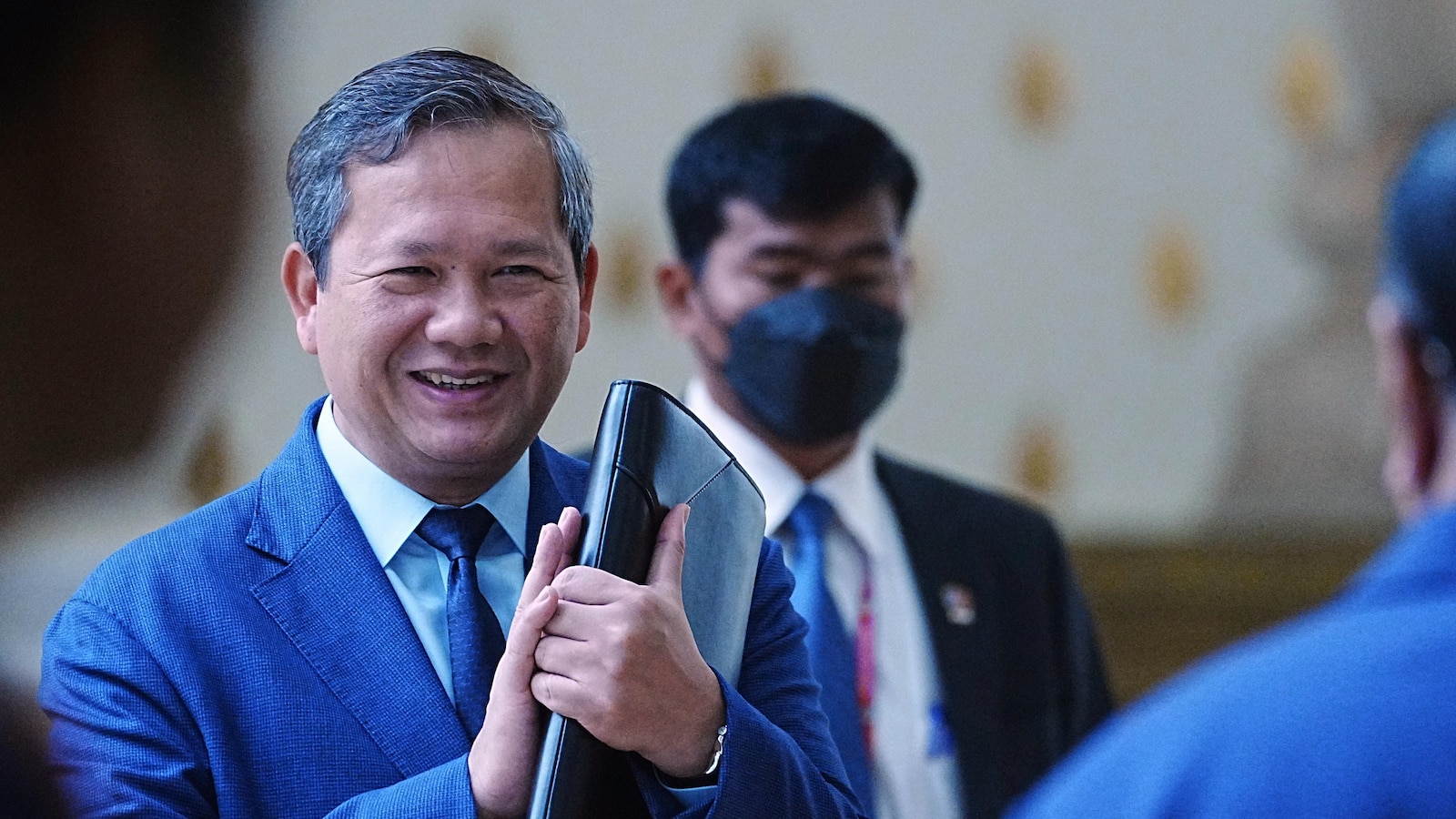ARTICLE AD BOX
President Trump on Tuesday said the onus is on other countries to strike trade pacts with the U.S. and not the other way around, pushing back against anxious investors and others who’ve grown impatient for deals.
He drew the hard line on trade talks during a sit-down with Canadian Prime Minister Mark Carney, whose country is fighting back against U.S. tariffs.
“We don’t have to sign deals,” Mr. Trump said. “They have to sign deals with us. They want a piece of our market, we don’t want a piece of their market. We don’t care about their market.”
The comments marked a return to his tough talk around his “Liberation Day” announcement on April 2, when he outlined a list of high tariffs on countries that sell plenty of goods to U.S. consumers but don’t buy nearly as much from American producers.
“We’re gonna sit down and put very fair numbers down and we’re gonna say, ‘Here’s what this country — what we want, and congratulations, we have a deal,” Mr. Trump said. “They’ll either say, ‘Great,’ and they’ll start shopping, or they’ll say, ‘Not going to do it,’ and I’ll say that’s OK, you don’t have to shop.”
“For the most part, we’re just going to put down a number and say this is what you’re gonna pay to shop,” Mr. Trump said.
The president was somewhat at odds with comments from members of his team, who’ve said foreign trade negotiations are proceeding well and could bear fruit within days.
“Perhaps as early as this week we will be announcing trade deals with some of our largest trading partners,” Treasury Secretary Scott Bessent told House lawmakers on Tuesday. “Many of our trading partners have approached us with very good offers.
Wall Street, which is anxiously awaiting progress on foreign trade, reacted negatively to Mr. Trump’s tough talk.
The Dow Jones Industrial Average was down 300 points after the meeting, and other major indexes trended negative.
Mr. Trump acknowledged that his team will make some deals. But the U.S. will call the shots, he insisted, pointing to the lure of the rich American market.
“Think of us as a super-luxury store, a store that has the goods,” Mr. Trump said.
Mr. Trump took the hard line on trade during a relatively friendly meeting with Mr. Carney, a Liberal Party leader who rode anti-Trump sentiment in Canada to a big election victory this year.
Canada was exempted from Mr. Trump’s “Liberation Day” tariffs but faces 25% levies on its steel and aluminum and a 25% tariff on cars that don’t meet requirements under the U.S.-Mexico-Canada Agreement.
Canadian goods remain subject to a 25% tariff that Mr. Trump imposed because of fentanyl trafficking across the northern border, though many goods are exempted under the USMCA.
Ottawa retaliated against Mr. Trump’s tariffs by putting a 25% tariff on $30 billion worth of U.S. goods such as orange juice, peanut butter, wine, spirits, beer, coffee and appliances.
Mr. Carney took a warm tone with the president, praising his commitment to ending the “scourge of fentanyl” and defending American workers.
The U.S. president, however, needled the Canadians with a Truth Social post Tuesday that said the U.S. did not need to rely on Canadian cars, lumber or other goods. He characterized the trade deficit, in which the U.S. buys more from Canadian producers than Canadians buy from U.S. producers, as subsidization of the neighboring nation.
“Canada does a lot more business with us than we do with Canada,” Mr. Trump said in the Oval Office. “Canada’s a place that will have to be able to take care of itself economically.”
At the same time, Mr. Trump signaled he would be open to making Canada one of the first countries to strike a new trade agreement.
“I would love that,” Mr. Trump said with Mr. Carney. “Look, I have a lot of respect for this man.”
Mr. Trump’s aggressive trade agenda is animated by his distaste for the U.S. trade deficit with the rest of the world.
The deficit, or the gap between what the U.S. sells to foreign nations versus what it buys, hit a record $140.5 billion in March — roughly double the deficit from a year ago — because companies imported lots of goods to get ahead of Mr. Trump’s tariffs.
The U.S. exported about $278.5 billion worth of goods in March while importing nearly $419 billion. Trade groups say retailers front-loaded cargo in recent months as Mr. Trump teased his tariff plans.
While a deal with Canada is a work in progress, trade talks with China haven’t even begun.
Mr. Bessent and Mr. Trump acknowledged Tuesday that there have not been formal meetings on a deal, as both countries impose an effective trade embargo on each other with tariffs that exceed 100%.
The U.S. side thinks Beijing will blink first, pointing to the pain China is feeling in its export-heavy economy.
“They want to meet, and they’re doing no business right now,” Mr. Trump said. “Those ships are turning around in the Pacific Ocean.”
“They are suffering greatly,” he said.

 3 months ago
45
3 months ago
45








 English (US) ·
English (US) ·